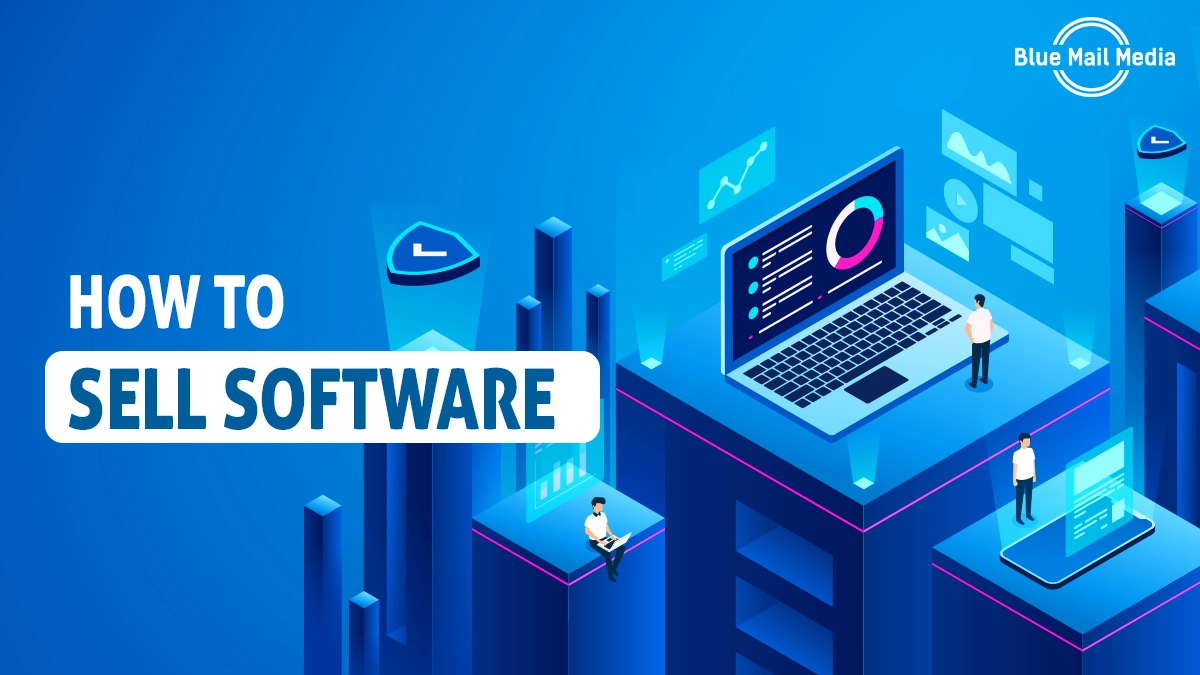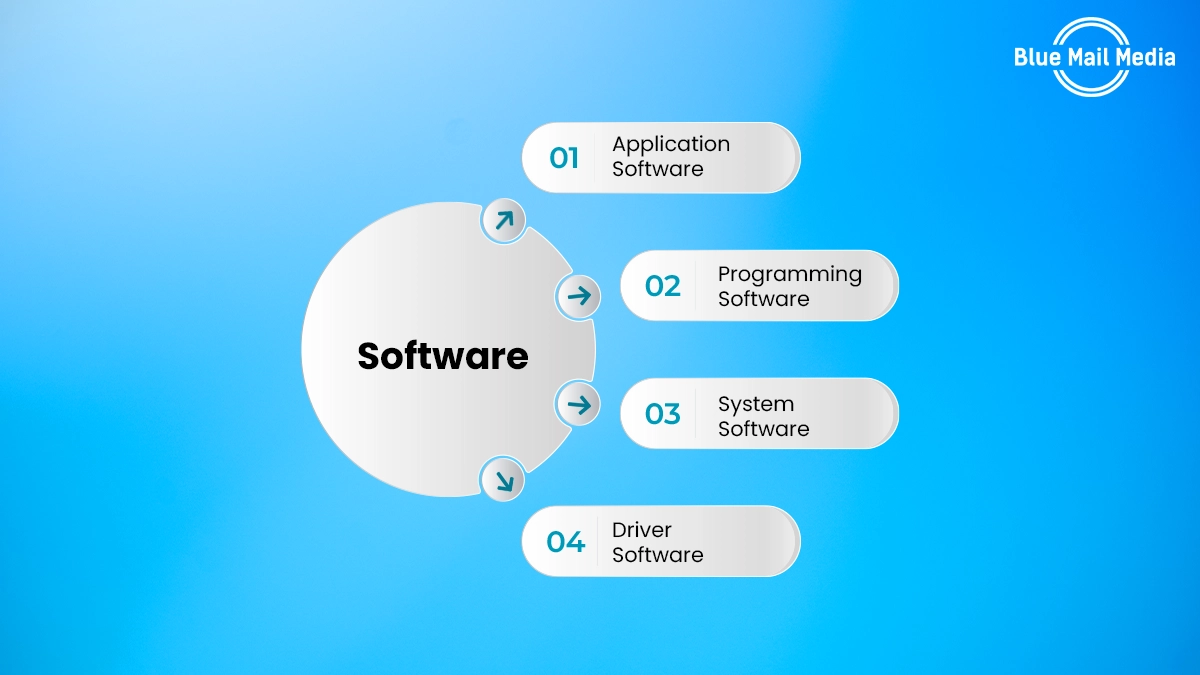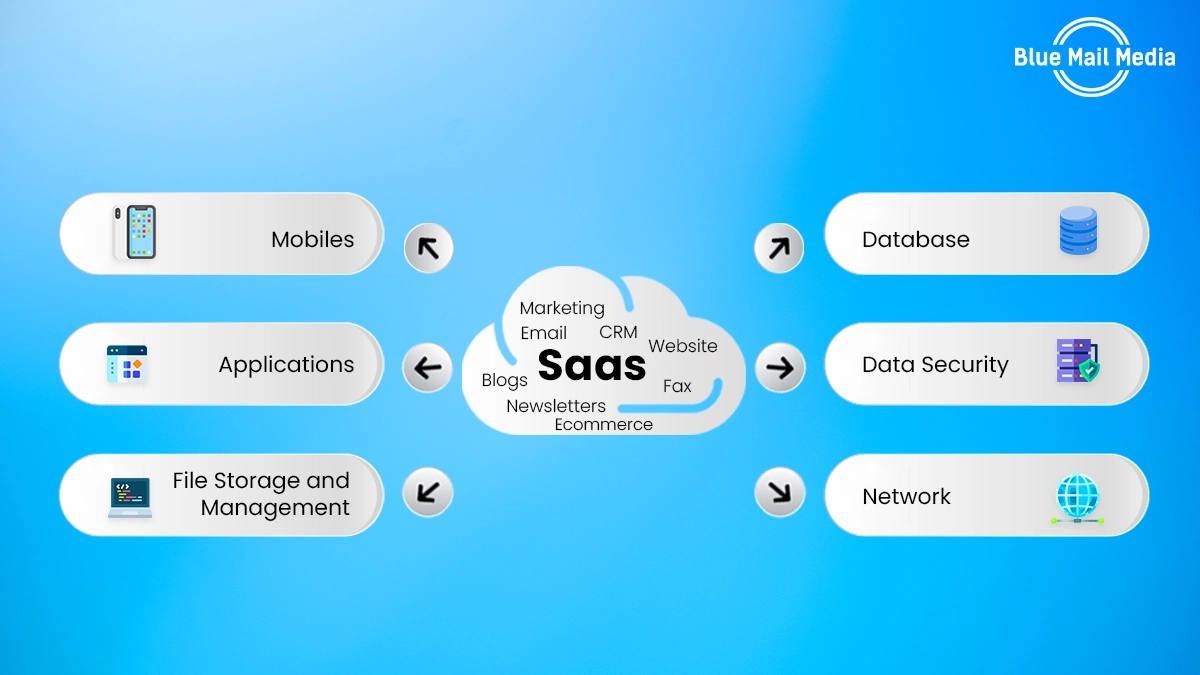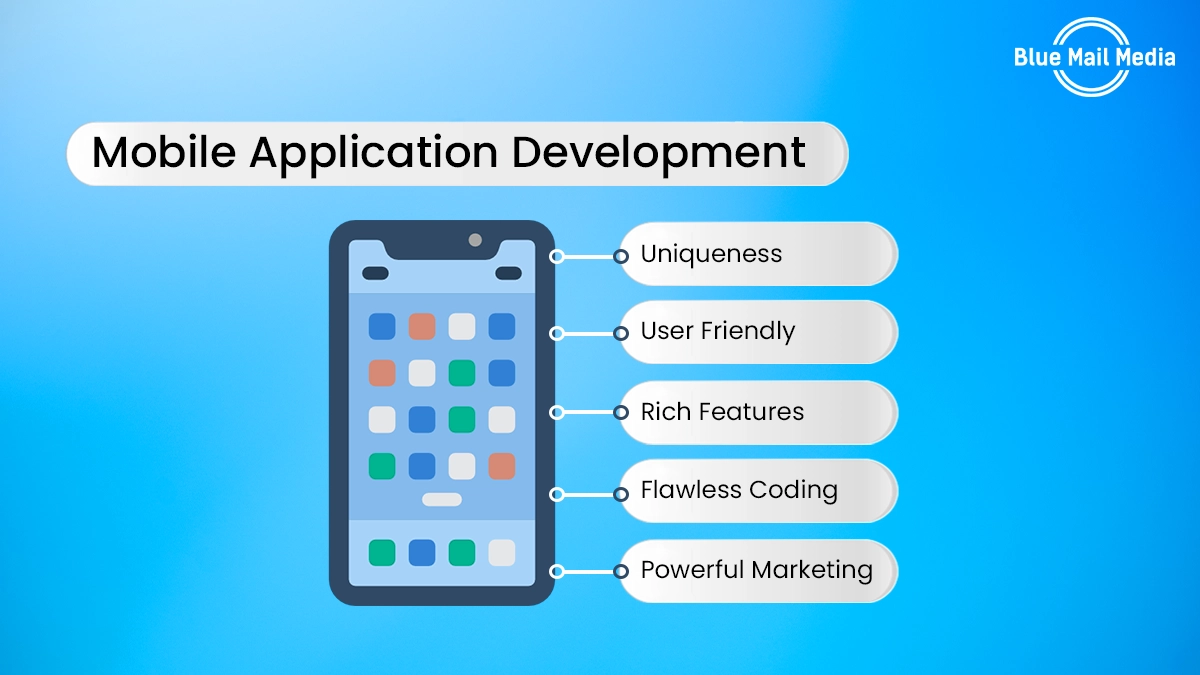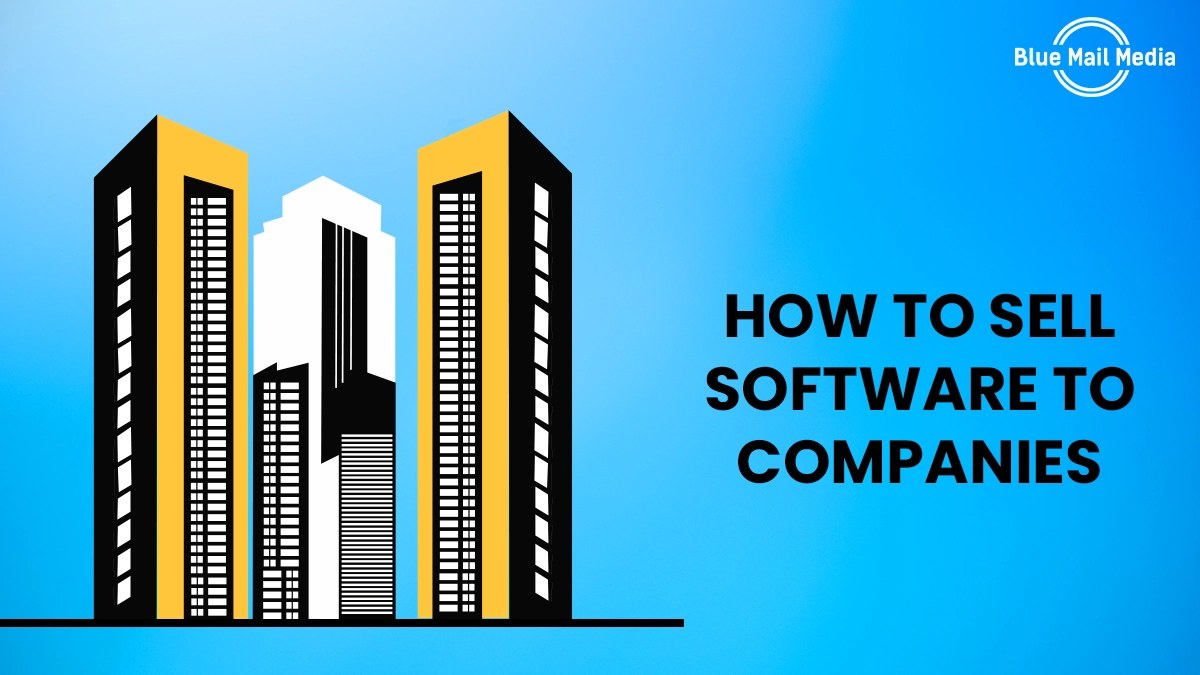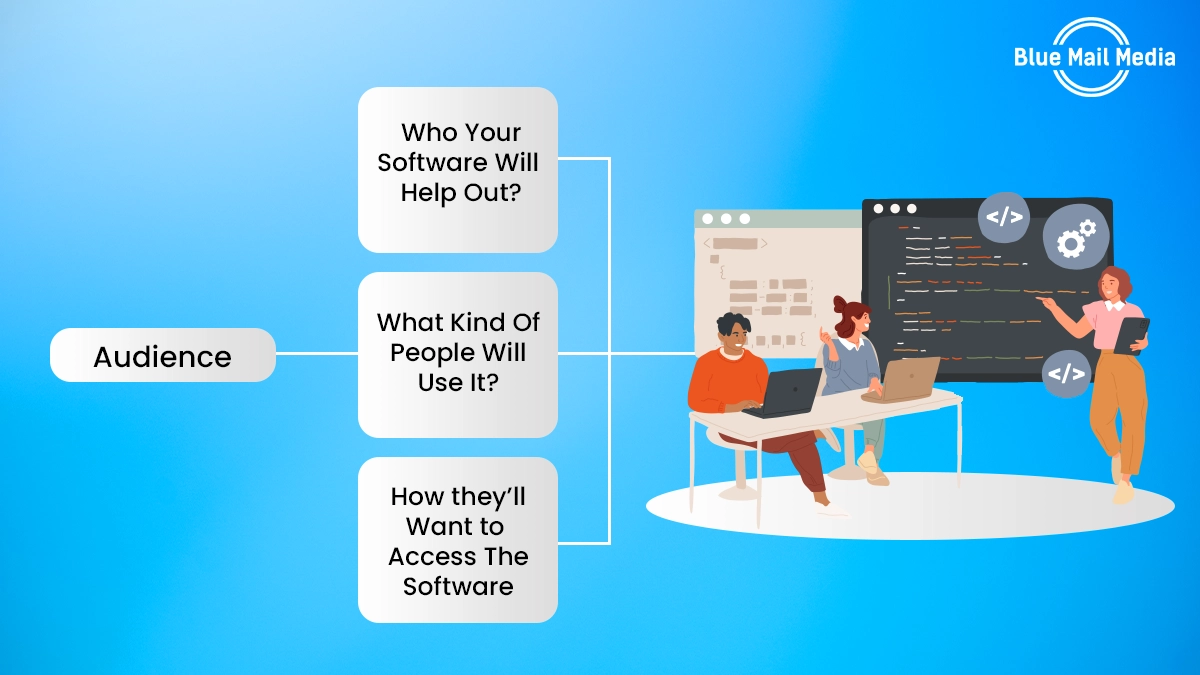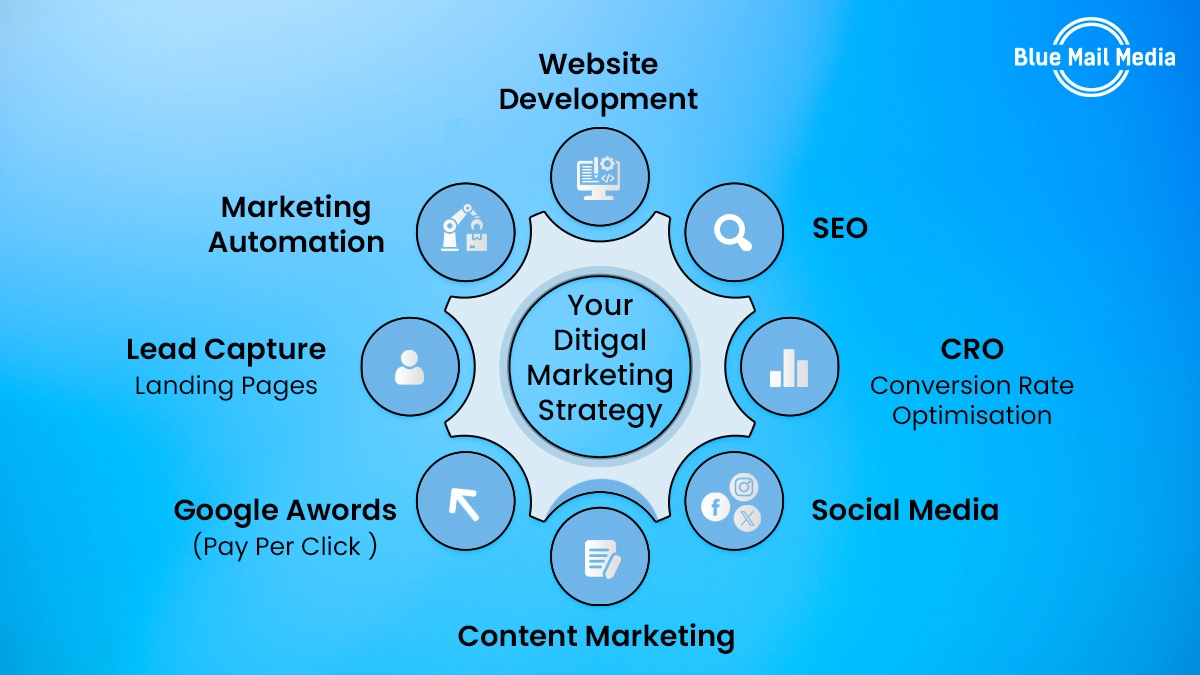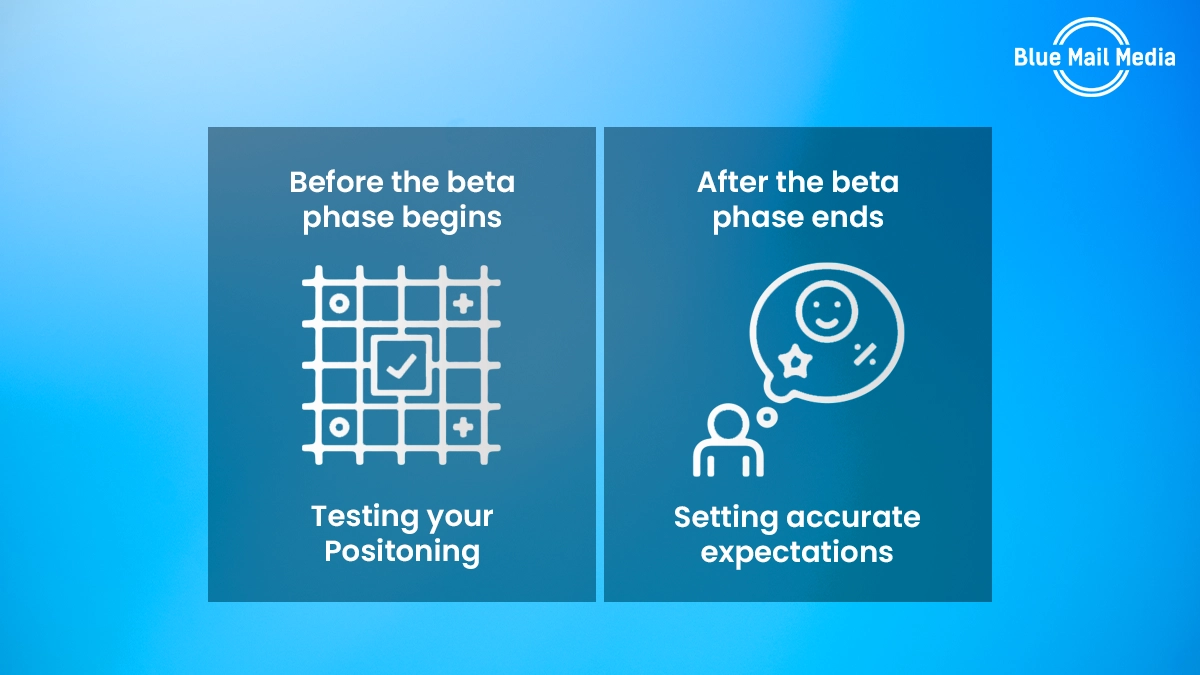Effective software allows businesses to better manage their data and streamline their operations. However, with the rising competition among software businesses, it has become imperative to use the right strategies to showcase a software product to the ideal client.
Statistics reveal that in 2024, the software market globally is forecasted to grow $698.80 billion, with a significant revenue growth of $353.30 billion in the USA. This growth urges software companies to implement powerful strategies to outperform the competition.
The software market will grow by 5.27% annually from 2024-2028, which indicates high potential in this industry. Now is the right time for software businesses to leverage this opportunity, as the major revenue growth of $353.30 billion will be seen by 2028.
More growth is expected in business software, as Enterprise software is forecasted to have a $292 billion value in 2024, dominating the other software available in the market.
Let us now understand the different types of software and the ins and outs of how to sell software.
Different Types of Software:
Software as a Service (SaaS)
Software as a Service, or SaaS, means providing software services via the Internet. In the last few years, the SaaS industry has outgrown its size. Developing these software services and marketing to enterprises will help your business reach untouched milestones.
The SaaS services are offered for users on subscription money. SaaS service providers encourage users to continue their current plan or explain the benefits of an upgraded version.
A few examples of SaaS software are:
- Email Service Providers
- Data Security
- Calendar and Time Management Applications
- File Storage and Management
- Creative Design Applications
- Document Creation Applications
Mobile Applications
Software companies also design software that is operated explicitly on mobile devices. Some SAAS software can be implemented on mobile as well, but most mobile application software is meant for mobile devices only.
A few examples of Mobile Software are:
- Social Media Platforms
- Banking Apps
- Texting and Communication Apps
- Games
- And More
Physical Software
Though most software is often downloaded online, software development companies also offer physical software prints. It involves offering a CD version of a software application and enabling installation from the disc.
A few examples of Physical Software are:
- Document Creation Software
- Bookkeeping Software
- Games
- Creative Design Applications
8 Tips on How to Sell Software to Companies
1. Identify Prospecting Leads
Learning your target prospects is the initial step in determining how to sell software. It is vital due to the saturated software market and the need to furnish the most valuable persona. Here are a few ways to determine a prospective client:
- Market Research & Analysis: Software companies must analyze the industry trends and rising demands to create compelling sales and marketing campaigns.
- Creating Buyer Personas: Insights into buyer personas increases software business profitability. Use insights from market research, behavioral traits, and demographics, to create buyer identities for software.
- User Data: User data allows businesses to analyze market trends, enhance software user experience, and target suitable leads.
2. Aim Potential Clients and Organizations
Now that you have identified suitable prospects to sell your software, it is essential to identify the roles, companies, and industries these targeted prospects work for; this will assist in examining whether these organizations and potential prospects are interested in learning about your software product.
Connect with SEMs and CTOs of the determined businesses, as they have the authority to obtain the software. By offering them clear visibility into your software services and addressing their business needs, you increase the probability of selling the software. Targeting potential clients with clear communication will aid in enhancing your business credibility.
3. Recognize Your Business Competition
A client aiming for software services may already have a ‘n’ number of proposals from other software ventures. To outperform the competition and analyze how to sell software to businesses effectively, your software business needs to analyze what software features your competitors offer so you can analyze what and how to offer a unique feature. It increases the chances of selling your software.
You can also consider offering better features in other attributes, such as payment options, client service offerings, CRM integration benefits, software robustness, and more.
4. Digital Marketing Plan
With everything online, marketing software digitally allows businesses to maximize their brand reach to prospecting prospects.
Here are a few effective digital marketing strategies that will help you analyze how to sell software digitally to run successful marketing campaigns and increase conversions:
# SEO
Businesses can enhance their website’s performance and improve ranking with the help of SEO. To make effective software sales, implement SEO strategies like creating relevant content, optimizing keywords, and building on-page and off-page links. This will help acquire the prospect’s interest, generate leads, and increase sales.
# Social Media Marketing
This is yet another powerful digital marketing strategy. You can increase your software business’s engagement with social media strategy.
LinkedIn is one of the best sales-driving and lead-conversion social media platforms. It is a professional platform that will help your software business to expand its network. Create new connections with industry experts to understand the rising market trends and enhance your products. You can even promote your software to rights prospects on the platform.
# Link Building and Outreach
Quality link building and outreach strategy will help companies boost their software business. It increases business authority and visibility. Outreach to other trusted software businesses to offer links, collaboration, or a mention on your site and ask them to do the same for you. The linkable content must be valuable, engaging, and attract potential customers. This increases referrals and sales.
# Collect Positive Reviews
Impactful reviews will help you gather client feedback for the software product. This will also help you improve your software services and client experience overall.
5. Participate in Industry-related Conferences
Attending conferences, webinars, and seminars related to your software industry will allow you to meet prospects in person. By meeting professionals and industry experts, you can analyze what requirements your prospects are expecting in the software, what are the current market trends, and gain new ideas that you can implement in your product. These insights will help you improve your product and grow your business.
6. Beta-test Your Software Before Promoting It in the Marketing Campaigns
- Beta testing is a user verification method performed to measure the satisfaction level of the clients.
- Using beta testing, businesses can access the accurate insights on feedbacks, functionality, and software usability. With these insights they can enhance the lead experience.
- To perform beta testing, create a team of diverse users to analyze the software’s functionality on different devices. This will help you understand its compatibilities, necessities, and usage.
- This testing will also enable your software business to identify any bugs and gaps in the final product.
- For a software business to be successful, it has to offer software that provides user satisfaction. Beta testing will help your business to succeed by understanding the user experience and enhancing the performance of the software product.
7. Provide Free Trial Service
With this step, software companies can consider those clients that can really benefit from their product.
Offer a free trial, let your prospects try it, and analyze whether they want to purchase. This will not only help you target interested leads but also increase their trust in your software.
8. Perform Effective Cold Emails
Cold calling regularly helps businesses generates quality leads. It is a solid outreach strategy that helps businesses pursue their prospects to obtain their products. It offers high scalability and is cost-effective.
Follow a few tips to send powerful cold emails for effective sales:
- Validate your organization and explain how your software can benefit their business.
- Add your software’s portfolio website and description. Keep it short yet brief, easy to read, and actionable.
- Personalize your software message to address the prospect’s requirements.
- Write an eye-catching subject line that persuades the potential lead to read your marketing mail. This will also help increase open rates.
- Highlight your unique selling point that will offer better service than others and attract leads to your product.
- Include your business’s contact information, as this is the easiest way to reach out directly to your potential prospects.
Conclusion
Since the software industry is booming, businesses must implement effective marketing strategies to increase their chances of selling their software. Software businesses can increase sales with careful preparation, a powerful approach, and skillful intervention.
Another effective solution for selling software is A/B testing. This will help software businesses perform trial and error until they develop strategies that will work for their software sales.
Follow the above effective strategies to achieve successful campaigns, maximum reach, drive leads, and increase profits for your business. Remember, each step in selling software will influence the next one, and every decision made will matter in the company’s long run. So, create a sales funnel with a strategic and calculated approach.
FAQS:
How can software businesses build long-term relationships with their clients after sale?
There are many ways to create lasting relations, and one such effective way is to offer assistance even after selling the software. This will help your business gain trust from the client and they can end-up having a long term relation with your business.
How can software solutions benefit my business?
The most significant benefit you can leverage is increased efficiency and productivity in your business operations. The software automates repetitive tasks and reduces manual labor, allowing employees to focus on other essential activities.

